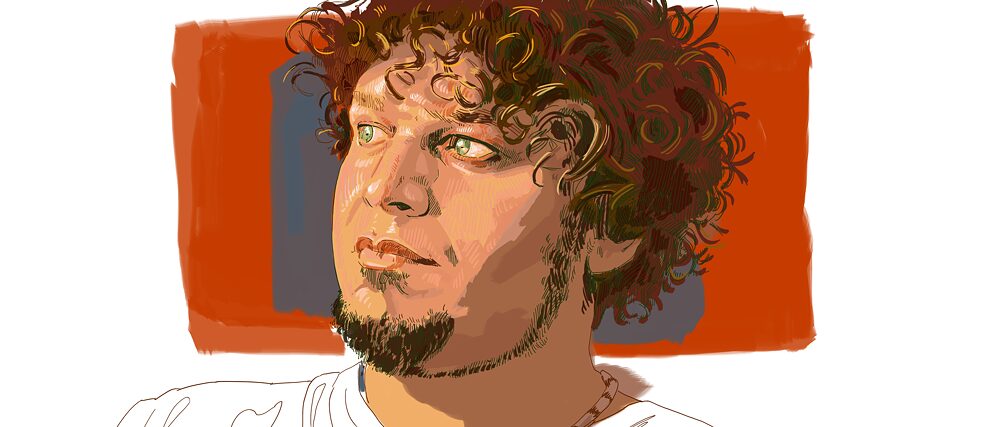by Yahya Allaq from Baghdad
The Road to Mosul

Yahya Allaq was born in 1980 in Baghdad. He completed his studies in theatre at the Institute of Fine Arts and obtained his BA in cinema from the Academy of Fine Arts in Baghdad. He has directed several short films. In 2004, after the fall of regime, famous Iraqi film director Muhamad Al-Daraji returned to Iraq, and Yahya became his assistant director, shooting the film Dreams. The film was shown internationally, and it won many awards. While shooting the movie, they were kidnapped, only to be released by a stroke of luck. Undaunted, the director returned to shoot his famous movie Son of Babylon, and Yahya worked as his first assistant director. It became one of the most well known movies to document the state of war and the suffering of the Iraqi people. These experiences led Yahya to pursue an academic career in the United States, at the New York Film Academy where he obtained his MA in film production. Yahya returned to Iraq in 2015 and continues to work as a film director and script writer.
The movie The Road to Mosul was written by three writers: Yahya Allaq, Hasan Falih and Italian writer Selini De Vega. There are three main actors and more than two hundred in secondary roles. The film lasts around 80 minutes. Yahya plans to start shooting and directing the movie in December 2019.
The movie centres on a ten-year-old girl named Nour who accompanies her fifteen-year-old brother Zakarya to a refugee camp in northern Iraq. They run away to Mosul to find their mother who is a nurse and who now works in a hospital run by ISIS. Zakarya plans to kill his mother to restore honour to his family because he has heard rumours that she was married in a jihad al-nikah, or jihad marriage.
Background to the film
In 2015, Yahya wrote the script for this movie, inspired by his work with a friend in a humanitarian organisation to help refugees from Mosul who had tried to escape ISIS. There, he met a young girl named Zainab. When he tried to speak to her, she stayed silent. Later on, Yahya discovered that Zainab’s parents were killed by ISIS. The militants were going to sell her into sex slavery, but she managed to run away from them. Yahya says that her silence was a symbol of the horror and oppression Iraqi women and children suffered. It motivated him to focus his film on this issue.The aim of this movie
During their journey, Nour and Zakarya pass through cities and towns in Kurdistan and Iraq, from deserts to mountains, which Yahya includes to show the diversity and beauty of Iraqi society. The film centres around ISIS’s terrorization and indiscriminate killing of all people within Iraq. The horror has left its mark on the people, resulting in even further divisions and deeper wounds in the country. Yahya wants to portray these miseries to the outside world and show how they have scarred the Iraqi people.Yahya still remembers the Kuwait war, and how his family ran to Najaf to escape the bombardment. He remembers the Iran-Iraq war in the 1980’s, when he was only a child, and how he saw his grandparents cried for their sons. Yahya says:
“I found out by coincidence how I lost seven of my uncles and how I have another uncle that my family never even spoke of. My grandfather died in agony without seeing him for the last time. This uncle of mine returned from Iran to Iraq only after the regime’s fall because he was in opposition to the regime. This is how my eyes were opened to the miseries in Iraq. From early childhood, I saw images of war and death on Iraqi TV.”
Yahya wants to change people’s perception. He believes that film has the power to change lives. Through this film in particular, he wants to raise awareness against honour killing. He hopes to showcase this movie not only in the larger cinemas of the city, but also in villages.
Comments
Comment